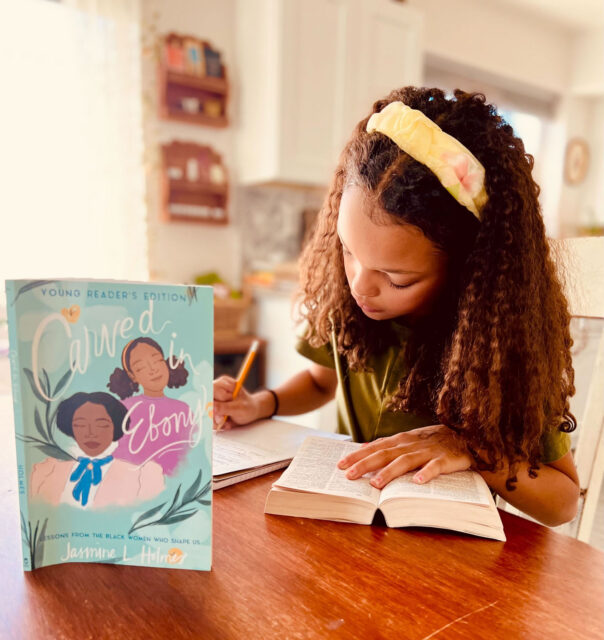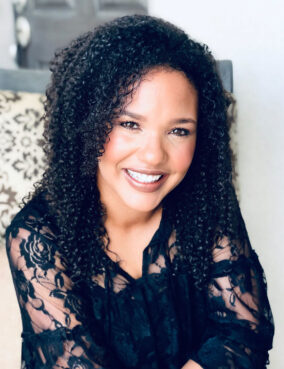(RNS) — A few months ago, Brytni McNeil, a 34-year-old mother of five daughters, was flipping through a copy of a George Washington Carver biography listed in a homeschooling curriculum when she spotted some glaring inaccuracies.
Most notably, enslavers were referred to as “caregivers” who benevolently bestowed their last names on Black people.
“Those subtle lies that creep into material is how a child begins to develop their entire world view. That child grows up thinking, we have no culture, we didn’t even have names,” said McNeil, who lives in Phoenix, Arizona. “You’ll find curriculums that tell half-truths, or don’t leave spaces and room for more questions.”
It’s incidents like these that have led McNeil to join a broader contingent of Black home educators, many of them Christian mothers, who are creating and adopting anti-racist curricula. In 2020, the percentage of Black households opting for homeschooling surged from 3.3% in the spring to 16.1% in the fall, per U.S. Census data.
Despite the recent swell in Black-centered homeschooling, many homeschooling curricula lag far behind when it comes to Black inclusion. And both the racist history of the 1960s homeschooling movement, which attracted families opposed to desegregation, as well as the persistent perception that homeschooling is the exclusive domain of white, conservative Christians act as barriers for Black families who might otherwise consider home education.
But for many Black home educators like McNeil, homeschooling is less a way of protecting kids from the secular influence of public education and instead a way of protecting kids from a racially biased institution. McNeil doesn’t want to shield her kids from reality — but to create a safe space to grapple with truth on her terms.
“I wanted them to be able to wrestle with the beauty and brokenness of our story as Black Americans,” McNeil told Religion News Service in a recent call. “I wanted them to be able to do it in a safe environment where we can hit pause, discuss the hard bits, weep over things that are sad in our history. And I wanted to make sure they had a steady diet of the triumph of our people.”
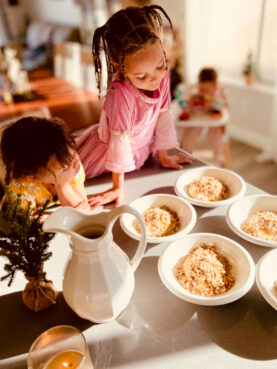
Brytni McNeil was homeschooled as a child while growing up in Tennessee and in Arizona, but she has taken her children’s homeschooling education a step beyond what she had growing up. Photo courtesy McNeil
McNeil’s original introduction to homeschooling was as a child growing up in Nashville, Tennessee, and later Phoenix, Arizona. But though she enjoyed being homeschooled, her curriculum wasn’t of the anti-racist variety.
The daughter of pastors, McNeil said she was raised in churches that prided themselves on the idea of diversity but didn’t alter white-centered power structures and only accepted Black folks who accommodated white expectations and comfortability.
“My understanding of race as a child was essentially to act as though it didn’t exist,” McNeil recalled. “I think in order to survive and thrive in a way, my parents, unfortunately, had to assimilate.”
Surrounded by a political environment that dismissed racism as a relic of the past, McNeil would instinctively rationalize her own encounters with racism. She was repeatedly asked the dehumanizing question, “what are you?” and told she was “pretty for a Black girl.” These incidents made her uncomfortable, but they were just misunderstandings, she thought.
McNeil has always considered homeschooling a form of spiritual formation. An evangelical Christian who is simultaneously “deeply troubled” by much of evangelicalism, McNeil believes God is the author of all knowledge. But in 2020, McNeil’s understanding of her role as a Christian mother suddenly expanded.
The murder of George Floyd shocked McNeil, as did the wave of solidarity that came after, prompting her to reckon with the racism she’d experienced head on. In the isolation of the pandemic lockdown, McNeil was finally “still enough before God… to hear him, and to see him finally peel these layers back in my heart,” McNeil told Jemar Tisby in a recent podcast episode as part of his “Fighting Racism” series done in partnership with RNS.
Now, McNeil believes racial justice isn’t merely a social cause; it’s also an eternal reality Christians are called to embody.
“At the end of all things, we all stand before Jesus and we all worship together from every nation, tribe and tongue,” said McNeil. “And I think Christians, in my opinion, should be the most outspoken people for racial justice because it’s literally our inheritance through our faith.”
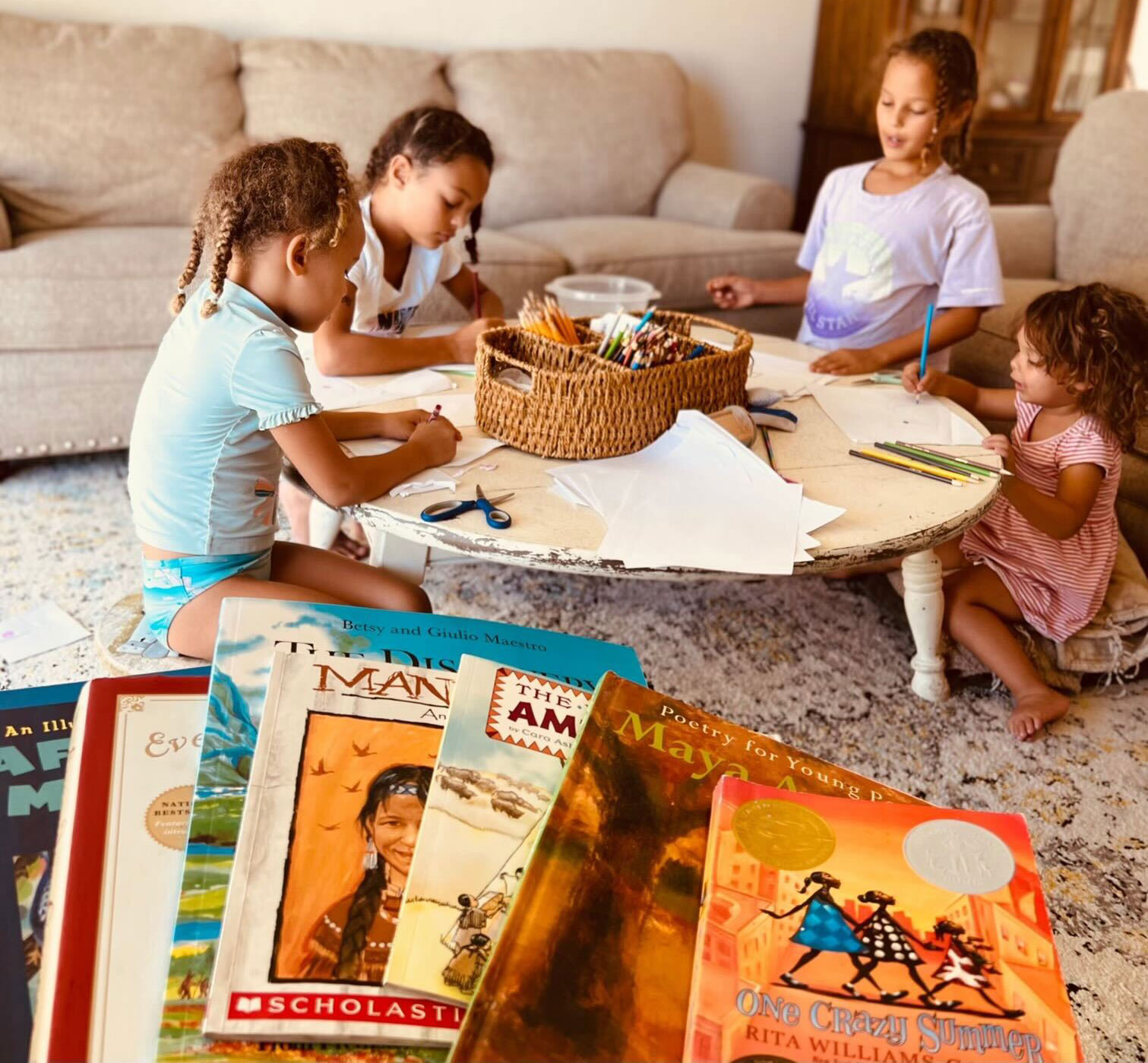
Brytni McNeil has made her approach to homeschooling accessible to others with a free parent guide, an instagram updated regularly with resources and a course for parents interested in Christian anti-racism. Photo courtesy McNeil
Since 2020, McNeil has created a free guide for parents navigating racism in children’s literature, revamped her Instagram as a resource for anti-racist home educators and released a course on a Christ-centered approach to anti-racist parenting.
Her 14-lesson parenting course uses the acronym HEAVEN (Humility, Empathy, Awareness, Verbalization, Endurance, Nurture) to offer a Scripture-grounded approach to unlearning and confronting racism via pre-recorded videos, a reflection guide, action steps and liturgies.
“When I was growing up, I thought the history of our people started with enslavement. They need to know that’s not the starting point,” McNeil told RNS. “I want them to have these filters so they can spot biased information very quickly and discern it … That’s just something I feel like the public school system cannot offer.”
McNeil isn’t the only Christian home educator curating anti-racist resources. Nicole Cottrell, a biracial home educator, had already been collecting and loaning out books featuring people of color from around the world when, in 2020, she took her booklists online via Stories of Color. It’s a free resource that includes curated books on topics like the importance of hair and books to read instead of biased classics, as well as homeschooling guides and a detailed catalog of over 2,650 books.
Six years ago, Amber O’Neal Johnston founded Heritage Homeschoolers of Cobb County, a co-op for Black homeschoolers and their families that offers enrichment classes, field trips and community service opportunities. While the co-op is composed largely of Christian families, there’s no faith requirement for members. Johnston saw an uptick from 76 families in the fall of 2019 to 105 families the following school year, and she says that while some of the growth was due to families searching for safe options during the pandemic, others have been switching to homeschooling to avoid racial disparities in education, find culturally relevant curriculum or simply to spend more time with their kids.
Johnston has seen pushback to anti-racist homeschooling online and at some Christian homeschooling conferences, but the reverberations of that pushback aren’t in her home, “and that’s kind of the whole point,” she said.
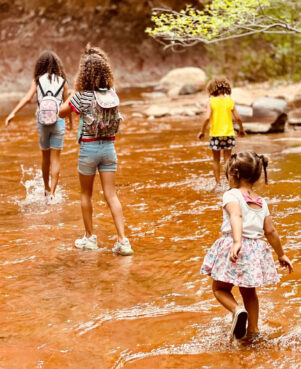
Brytni McNeil’s four children hike through a shallow stream. McNeil’s choice to homeschool her children stems from a desire to help her kids understand the realities of race and racism on her terms. Photo courtesy McNeil
“I’m out here championing these things alongside Brytni and some of the other moms. And we’re all in different cities, but it feels like we’ve all linked arms and are actively resisting. And rather than trying to fight back, the way we fight back is by educating.”
Johnston added that McNeil uniquely contributes to the homeschooling landscape by integrating her faith and her racial background into her resources.
“I could get behind what she was saying because it was unapologetically Christian, and unapologetically Black. And she shows that those two things are not opposing factors,” said Johnston. “That’s the angle I also speak from. It kind of felt like I found a sister, someone I could trust, open up to when things were hard.”
Cottrell agreed. “For her, it’s holy work,” she said, referring to McNeil. “I don’t personally know of anything else written from a gospel-centered perspective that’s anti-racist training for parents. I think she’s filled a huge need.”
And while McNeil unapologetically calls out the places where homeschooling remains white-centered and, in extreme cases, abusive, she hopes to model how homeschooling can also be faithful and anti-racist.
“I see my home as a mission field, just like any other, and feel called to share the love of Christ with my children, and to share life with them in a way that makes the reality of God come alive in a beautiful, life-giving way,” she said. “My hope is that one day they are caught up in something that feels so real and so genuine and so of God, that they feel drawn to it. Not pressured into it, but drawn into it.”
This story is part of an ongoing podcast and news series “Fighting Racism” produced by Footnotes with Jemar Tisby and Religion News Service.
